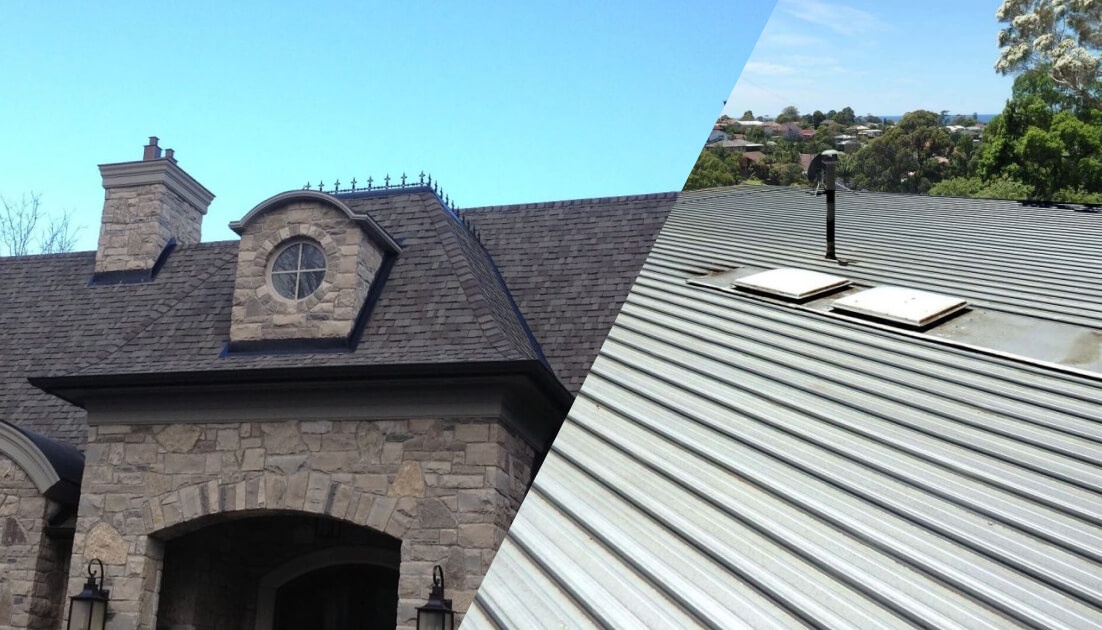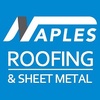When it comes to roofing, the needs of commercial and industrial buildings differ significantly. While both serve as protection against the elements, they are subjected to distinct challenges and requirements due to their varying purposes and environments. Understanding the differences between commercial and industrial roofing is crucial for property owners and developers to make informed decisions about their roofing systems. Knowing roofing can help owners to get the right commercial roofers in usa and industrial roofers.
So, let's delve into the distinctions between these two types of roofing.
Difference Between Commercial and Industrial Roofing
Purpose and Functionality
Commercial Roofing
Commercial buildings, such as offices, retail stores, and restaurants, typically prioritize aesthetics and functionality. The roofing systems for these structures often focus on providing insulation, weatherproofing, and aesthetic appeal to enhance the building's overall appearance.
Industrial Roofing
On the other hand, industrial facilities require roofing systems that can withstand heavy loads, extreme weather conditions, and chemical exposure. These buildings include warehouses, factories, and manufacturing plants, where durability and resilience are paramount.
Materials Used
Commercial Roofing
Common materials for commercial roofing include asphalt shingles, metal roofing, EPDM (ethylene propylene diene terpolymer), and TPO (thermoplastic polyolefin) membranes. These materials offer a balance between cost-effectiveness, durability, and aesthetics.
Industrial Roofing
Industrial buildings often utilize materials such as corrugated metal panels, built-up roofing (BUR), modified bitumen, and spray foam insulation. These materials are chosen for their ability to withstand heavy foot traffic, harsh chemicals, and extreme temperatures commonly encountered in industrial settings.
Structural Considerations
Commercial Roofing
Commercial roofs are typically sloped or flat, depending on the architectural design of the building. They may incorporate features like skylights, HVAC units, and rooftop gardens to enhance functionality and aesthetics.
Industrial Roofing
The industrial roofs are predominantly flat to accommodate equipment installations, and storage space, and facilitate ease of maintenance. They are engineered to support heavy machinery, HVAC systems, and additional loads associated with industrial operations.
Maintenance and Lifespan
Commercial Roofing
Regular maintenance, such as inspections, cleaning, and repairs, is essential to prolong the lifespan of commercial roofing systems. With proper care and professional commercial roofing usa , commercial roofs can last anywhere from 15 to 30 years, depending on the materials used.
Industrial Roofing
Roofs of industrial buildings require robust maintenance programs due to the harsh conditions they endure. Regular inspections, leak detection, and repairs are crucial to prevent costly damages. Despite their durability, industrial roofing systems typically have a lifespan of 20 to 40 years with proper upkeep.
Cost Considerations
Commercial Roofing
The cost of commercial roofing varies depending on factors such as materials, roof size, and complexity of installation. While commercial roofing projects are more affordable than industrial roofing, investing in high-quality materials and professional installation is essential for long-term durability and performance.
Industrial Roofing
Projects of industrial roofing often involve higher upfront costs due to the specialized materials and installation requirements. However, these investments are justified by the increased durability and longevity of industrial roofing systems, which can mitigate the need for frequent repairs and replacements.
Environmental Impact
Commercial Roofing
Many commercial roofing materials, such as asphalt shingles and EPDM membranes, can be recycled, reducing their environmental footprint. Additionally, green roofing options, like vegetative roofs or solar panels, are increasingly popular among commercial buildings, offering energy efficiency and environmental benefits.
Industrial Roofing
Materials of industrial roofing often prioritize durability over eco-friendliness, as they need to withstand harsh conditions. However, some industrial facilities are adopting sustainable roofing solutions, such as cool roofs or photovoltaic systems, to minimize environmental impact and improve energy efficiency.
Regulatory Compliance
Commercial Roofing
Commercial buildings must adhere to local building codes and regulations, which often dictate the type of roofing materials and installation methods permitted. Compliance with these standards ensures the safety and structural integrity of commercial roofing systems.
Industrial Roofing
Roofs of industrial facilities are subject to additional regulations and industry-specific standards, particularly regarding safety and environmental impact. Industrial roofing projects may require compliance with Occupational Safety and Health Administration (OSHA) regulations, environmental permits, and industry-specific guidelines to ensure operational safety and regulatory compliance.
Fire Resistance and Hazard Mitigation
Commercial Roofing
Fire resistance is a crucial consideration for commercial buildings, especially those housing occupants or valuable assets. Commercial roofing materials are often chosen for their fire-retardant properties, such as metal roofing or modified bitumen membranes, to minimize the risk of fire damage.
Industrial Roofing
There might be higher fire risks in industrial facilities due to the presence of flammable materials, machinery, and chemical processes. Industrial roofing systems are designed with fire-resistant materials and may incorporate features like firewalls, sprinkler systems, and smoke vents to mitigate fire hazards and ensure the safety of personnel and assets.
Insulation and Energy Efficiency
Commercial Roofing
Energy efficiency is becoming increasingly important for commercial buildings to reduce operating costs and environmental impact. Commercial roofing systems may incorporate insulation materials, reflective coatings, and cool roof technologies to improve thermal performance and energy efficiency.
Industrial Roofing
While energy efficiency is a consideration for industrial buildings, it may be secondary to other priorities such as durability and structural integrity. However, industrial roofing systems can still benefit from insulation materials and energy-efficient design features to minimize heat gain or loss and optimize indoor climate control.
Concluding
In conclusion, while commercial industrial roofing shares the fundamental purpose of protecting buildings from the elements, they differ significantly in terms of materials, functionality, structural considerations, maintenance requirements, and cost. Property owners and developers must carefully assess their specific needs and requirements when choosing the appropriate roofing system for their commercial or industrial buildings. By understanding these differences, they can make informed decisions that ensure the long-term integrity and performance of their roofing investments.


No comments yet